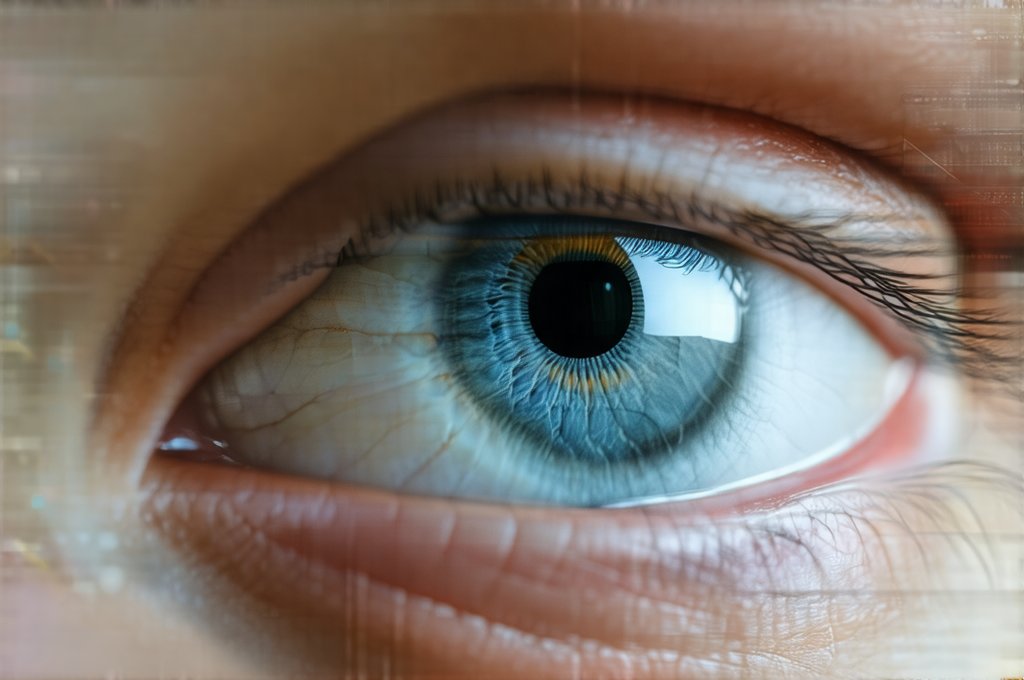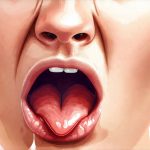Gastroesophageal reflux disease (GERD) is a surprisingly common condition affecting millions worldwide. Most people associate GERD with heartburn, regurgitation, and perhaps even chronic cough. However, the reach of this often-misunderstood disorder can extend far beyond digestive symptoms. Increasingly, individuals are reporting unexpected connections between their GERD and seemingly unrelated issues like blurry vision, raising questions about a possible link that warrants deeper exploration. Understanding these connections isn’t simply about identifying new symptoms; it’s about holistic health management and recognizing how interconnected our bodily systems truly are.
The digestive system, respiratory system, and even the visual system aren’t isolated entities. They interact in complex ways, and disruptions in one area can often cascade into others. GERD, at its core, involves the backflow of stomach acid into the esophagus – a seemingly localized problem. But chronic inflammation, vagus nerve stimulation, and systemic effects from prolonged acid exposure can have far-reaching consequences that may explain why some individuals experience visual disturbances alongside their typical GERD symptoms. This article will delve into the potential connections between GERD and blurry vision, exploring plausible mechanisms, associated conditions, and what steps to consider if you’re experiencing both.
The Vagus Nerve Connection
The vagus nerve is a crucial cranial nerve that acts as a superhighway of communication between the brain and many important organs, including the stomach, esophagus, and eyes. It plays a significant role in regulating digestion, heart rate, breathing, and even tear production. In GERD, frequent acid reflux can irritate the vagus nerve as it passes through the esophagus. This irritation isn’t just localized; it can trigger a cascade of neurological responses throughout the body. – The constant stimulation or inflammation can affect how the vagus nerve signals to the muscles controlling eye focus and accommodation.
This connection is thought to be one potential pathway linking GERD to blurry vision. When the vagus nerve is consistently disrupted, it might lead to temporary or intermittent changes in visual acuity. It’s not that the eyes themselves are damaged; rather, the neurological control of focusing mechanisms is compromised. Furthermore, chronic vagal nerve dysfunction can contribute to other symptoms like anxiety and fatigue which may further exacerbate perceived visual disturbances. This creates a complex interplay where GERD, vagus nerve disruption, and visual changes become intertwined. can emotional stress be a root cause highlights how stress impacts the nervous system which can exacerbate these issues.
The impact isn’t always direct or immediate. The effects are often subtle and may develop over time with ongoing reflux episodes. It’s also important to note that the vagus nerve is involved in many bodily functions, meaning that its dysregulation can manifest in a variety of ways beyond just blurry vision. – Other symptoms like difficulty swallowing (dysphagia), voice changes, or even heart rhythm irregularities could indicate broader vagal nerve involvement associated with chronic GERD.
Exploring Associated Conditions
Several conditions frequently co-occur with GERD and can independently cause blurry vision, making it challenging to pinpoint the exact source of visual disturbances. – Sjögren’s syndrome, an autoimmune disorder causing dry eyes and mouth, is one example. The resulting dryness can significantly impact corneal health and lead to blurred vision. Similarly, diabetes, often linked to GERD due to shared risk factors like obesity and lifestyle choices, can cause diabetic retinopathy, a leading cause of blindness. It’s crucial to rule out these underlying conditions before attributing blurry vision solely to GERD.
Another factor is the increasing prevalence of digital eye strain. In today’s world, we spend countless hours staring at screens, which can lead to eye fatigue, blurred vision, and headaches. This effect is amplified by GERD-related discomfort, as individuals may experience increased stress and tension in their neck and shoulders while dealing with heartburn or reflux, further straining the eyes. – Distinguishing between digital eye strain and GERD-related blurry vision requires careful evaluation of symptom patterns and potential triggers. can gut issues be a result of past dieting could contribute to overall health impacting visual acuity, too.
Finally, medication side effects must be considered. Many medications used to manage GERD, such as antihistamines or proton pump inhibitors (PPIs), can have ocular side effects, including dry eyes or changes in accommodation. – A thorough review of all medications with a healthcare professional is essential to identify any potential drug-induced visual disturbances. is there a connection between gut health and anxiety can help understand how medication impacts the body beyond just GERD.
The Role of Inflammation and Systemic Effects
Chronic inflammation is a hallmark of GERD. Persistent acid exposure leads to ongoing inflammation of the esophagus, but the inflammatory response doesn’t remain confined to that area. – Systemic inflammation, meaning inflammation throughout the body, can occur as the immune system attempts to manage the chronic irritation caused by reflux. This systemic inflammation can affect various organs, including the eyes.
Specifically, inflammation may impact the delicate blood vessels supplying the retina and optic nerve, potentially affecting visual function. Furthermore, chronic inflammation has been linked to an increased risk of developing autoimmune conditions that can directly target the eyes, such as uveitis or scleritis – both of which can cause blurry vision and pain. The exact mechanisms are still being investigated, but it’s clear that prolonged, unmanaged GERD can contribute to a systemic inflammatory burden with potential ocular consequences. can reactions be a sign of gut healing explains how the body reacts during periods of inflammation and recovery.
Beyond inflammation, chronic acid reflux can also lead to nutrient deficiencies. – Malabsorption of essential vitamins like B12 or D is common in individuals with long-standing GERD, as the stomach’s ability to properly process nutrients is compromised. Vitamin deficiencies can directly impact nerve function and visual acuity, further contributing to blurry vision. Addressing these nutritional imbalances through diet or supplementation may be necessary alongside managing the underlying GERD.
Diagnostic Approaches and Management Strategies
If you’re experiencing both GERD and blurry vision, a comprehensive evaluation is crucial to determine the cause and develop an appropriate management plan. – Start by consulting with your primary care physician who can assess your overall health, review your medical history, and perform a basic eye exam. They may then refer you to specialists as needed.
An ophthalmologist (eye doctor) should be consulted to rule out any underlying eye conditions such as glaucoma, cataracts, or macular degeneration. – A dilated eye exam will allow the ophthalmologist to thoroughly examine the retina and optic nerve, identifying any structural abnormalities that could be causing blurry vision. Further testing, like visual field tests or optical coherence tomography (OCT), may also be recommended depending on the findings.
Simultaneously, a gastroenterologist can evaluate your GERD symptoms and determine the severity of reflux. – Diagnostic tools include upper endoscopy to visualize the esophagus and detect any damage caused by acid exposure, as well as esophageal manometry to assess the function of the lower esophageal sphincter. pH monitoring can quantify the amount of acid reflux occurring over a 24-hour period. Based on these findings, they can tailor a treatment plan specifically for your GERD. can gut symptoms be a sign of burnout is important to consider when evaluating overall health and stress levels.
Managing GERD effectively is often the first step in addressing potential visual disturbances. – Lifestyle modifications such as elevating the head of your bed, avoiding trigger foods (e.g., caffeine, alcohol, spicy foods), and losing weight if necessary are fundamental. Medications like PPIs or H2 receptor antagonists may be prescribed to reduce acid production. In some cases, surgery may be considered for severe GERD that doesn’t respond to medical management. It is important to note that while managing GERD can potentially alleviate blurry vision caused by vagal nerve stimulation or systemic inflammation, it won’t address underlying eye conditions. – A collaborative approach involving both an ophthalmologist and a gastroenterologist is essential for optimal care. can travel constipation be a sign of intolerance shows how digestive issues can impact overall wellbeing.
can gut symptoms be a warning sign reminds readers to pay attention to their bodies and seek medical help when needed.
Disclaimer: This article provides general information and should not be considered medical advice. Always consult with qualified healthcare professionals for diagnosis and treatment of any health condition.


















